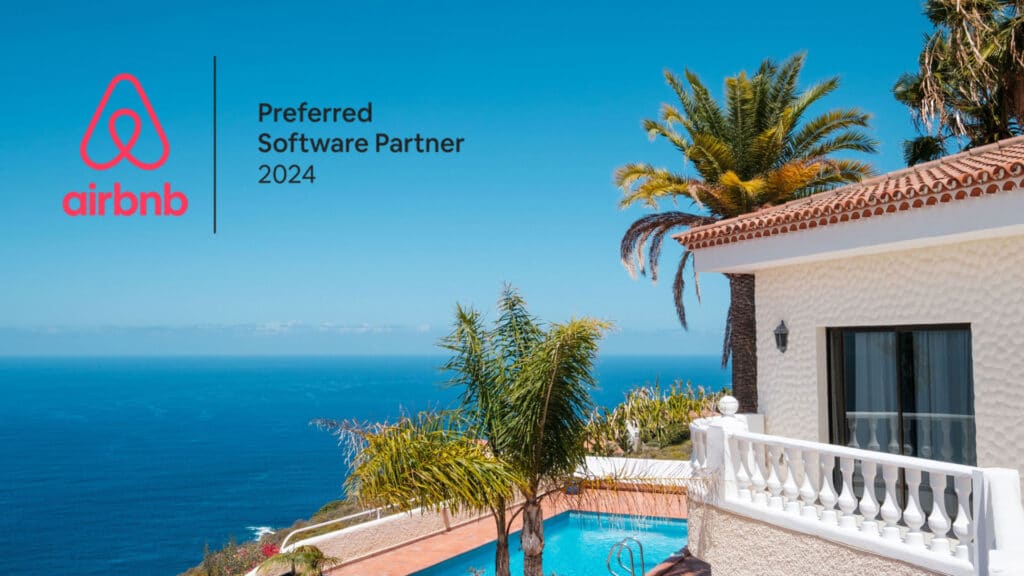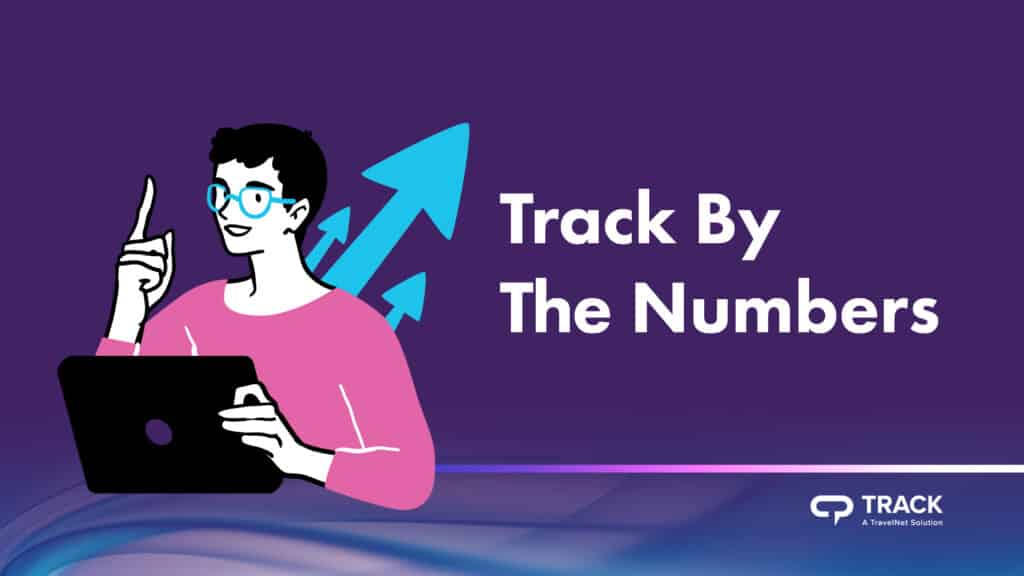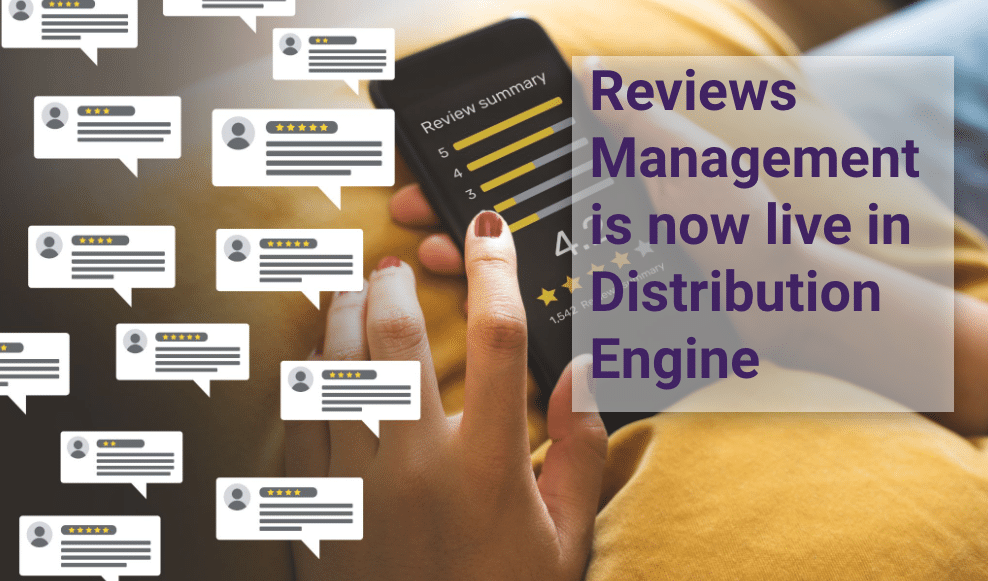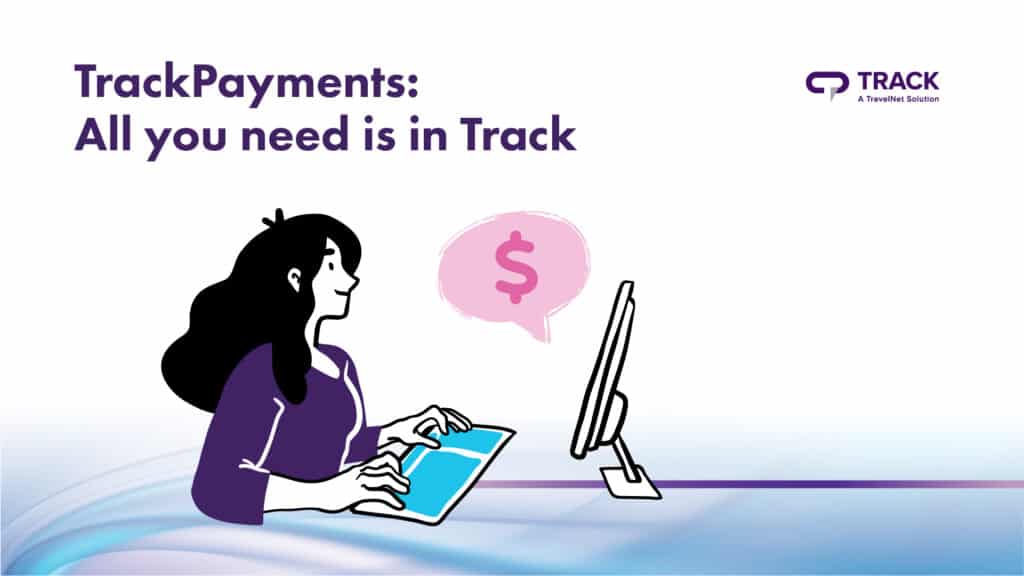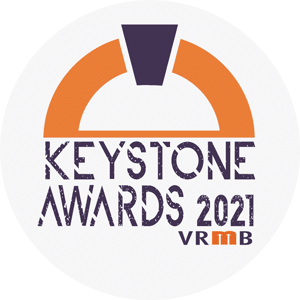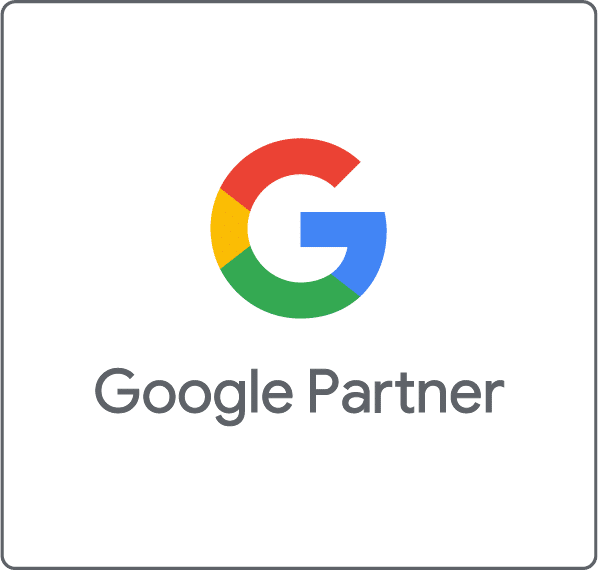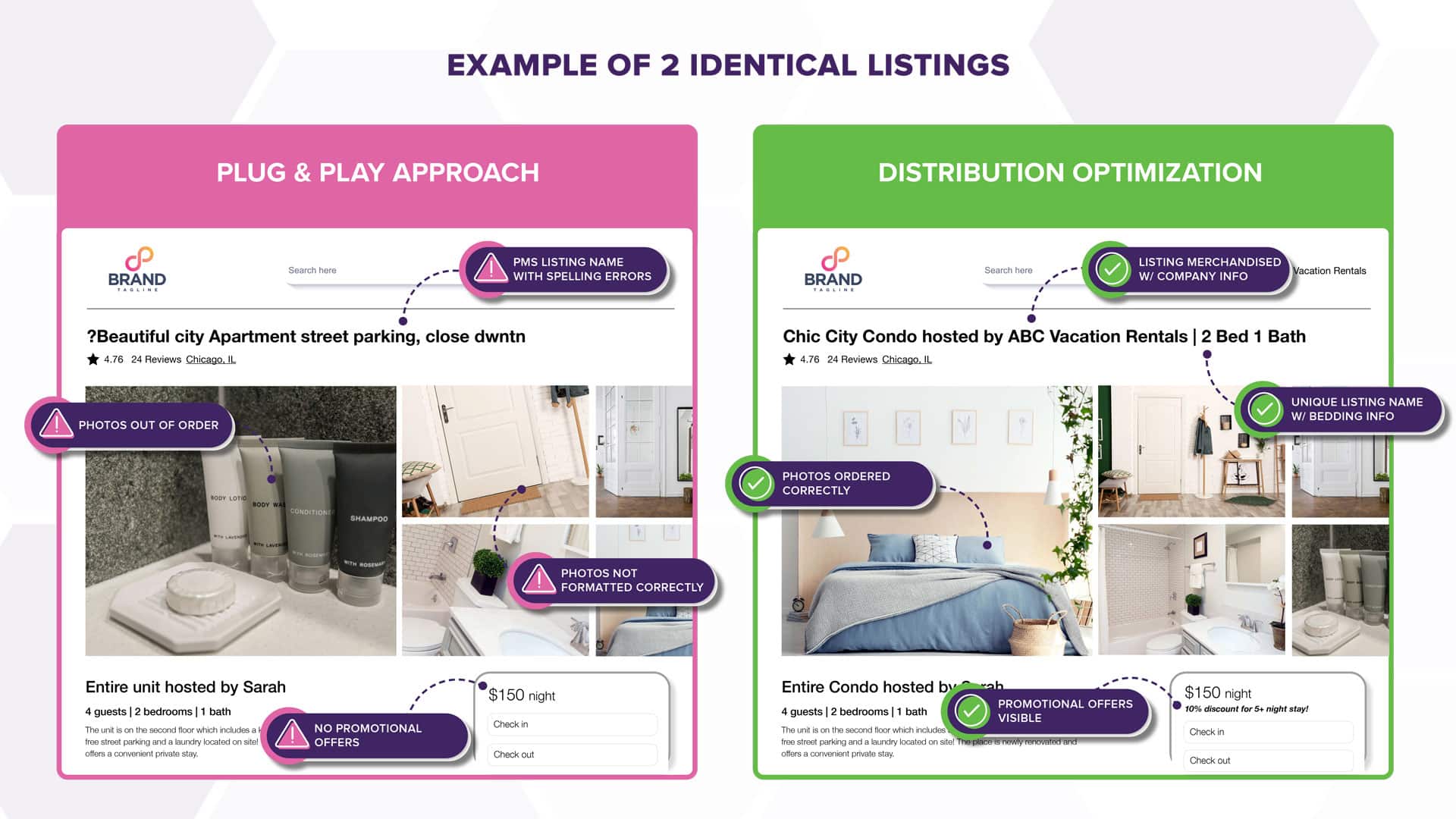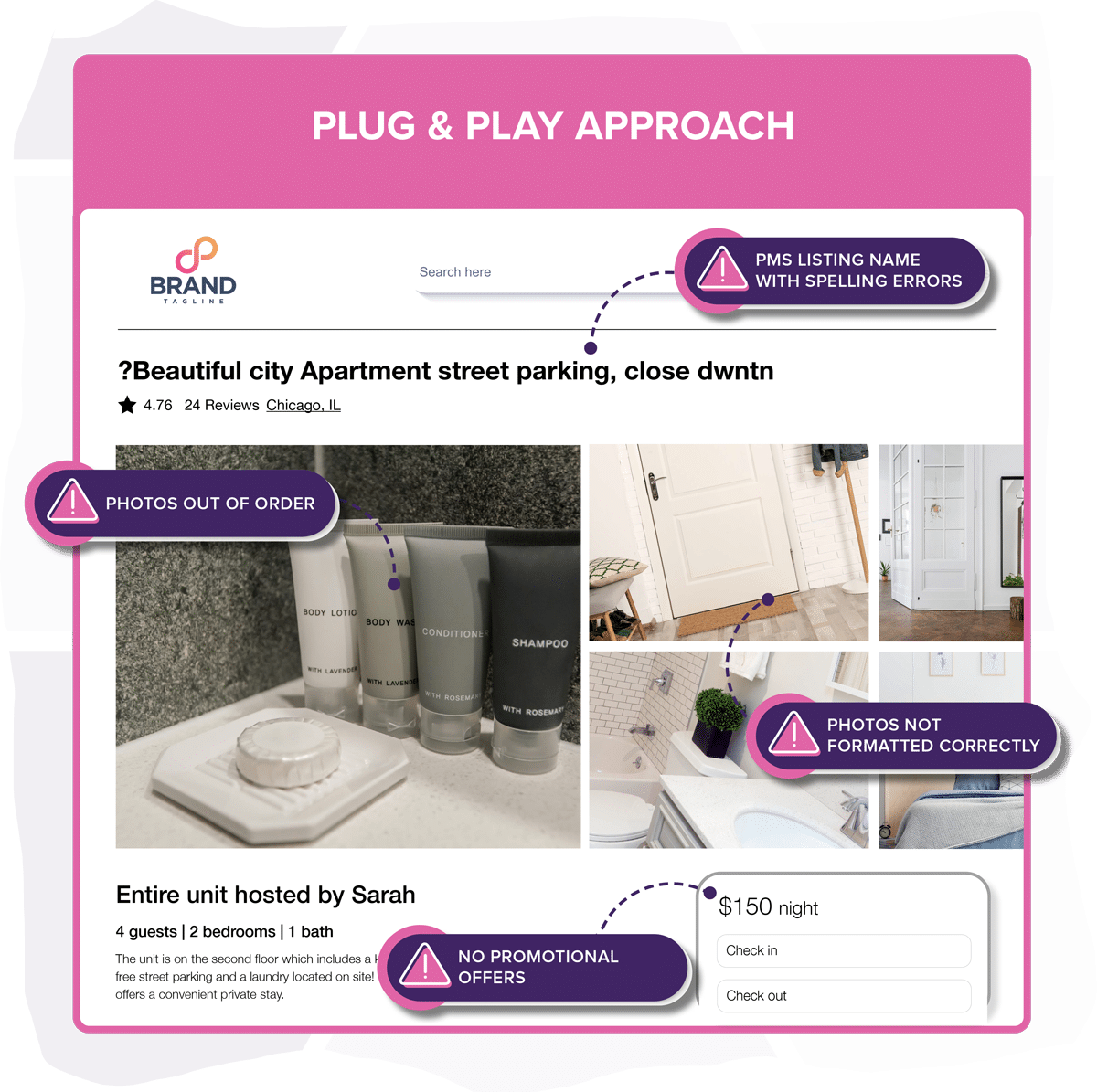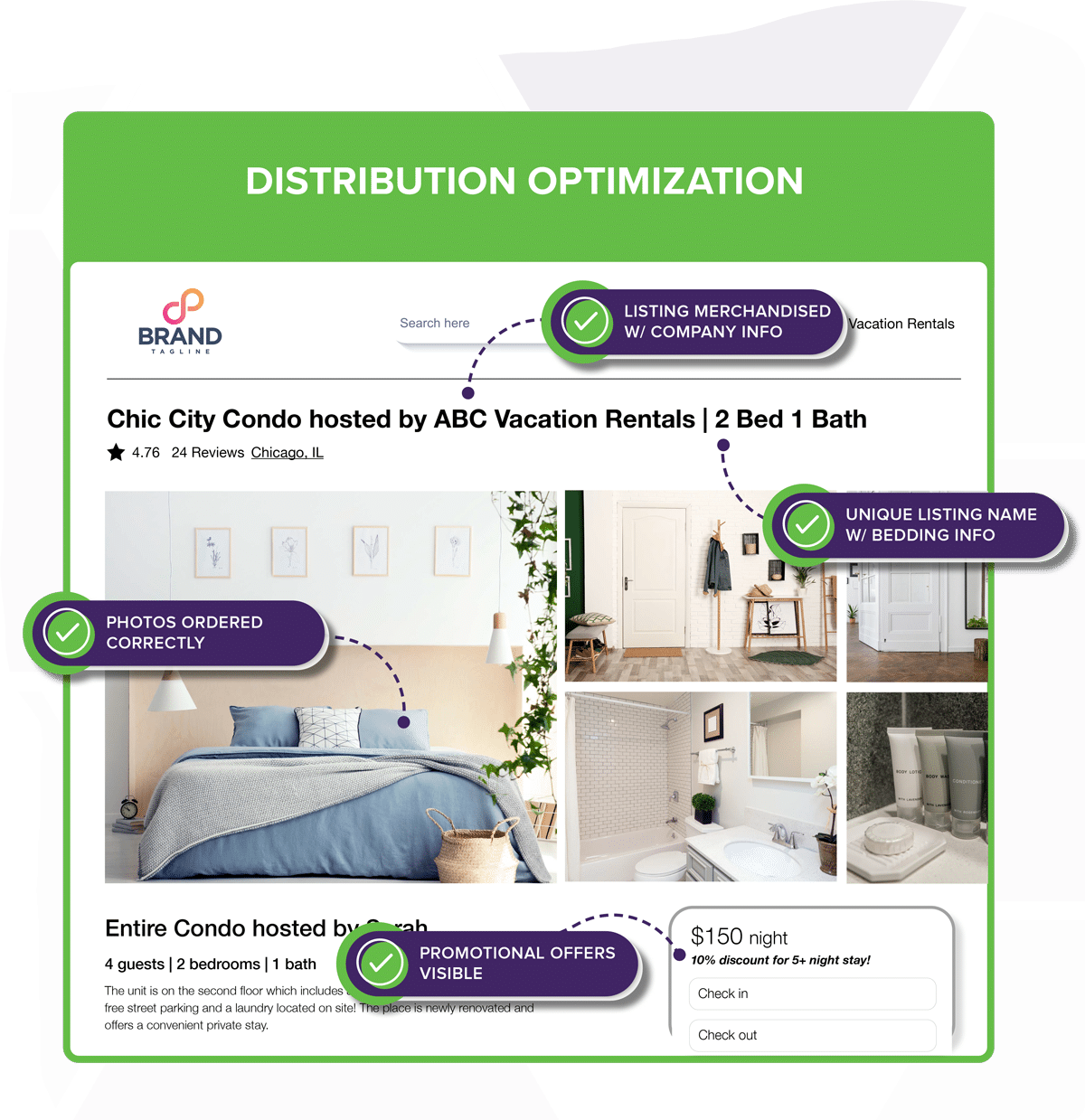- All
- Vacation Rentals
- Company News
- TrackPMS
- Partnerships
- TrackRevenue
- TrackDistribution
- Reviews Management
- TrackPayments
- KeyData
- Rented
Track Again Named Airbnb Preferred+ Software Partner
Airbnb has released its annual Preferred Software Partners list and Track has been named a Preferred+ partner. Airbnb’s Preferred Software Partner program recognizes and rewards best-in-class connectivity partners that have met or exceeded its requisite technical and performance requirements. The program also provides members with a range of benefits including fast-tracked and dedicated technical support from Airbnb’s API support team, the ability to provide feedback on API features, and more. This valuable program helps to strengthen Track’s partnership with Airbnb. Track, a TravelNet Solution, provides growing short-term rental companies with the enterprise-class software they need to scale. Its expanding list of native features encourages technology consolidation and digital transformation, giving operators a leg up in the modern marketplace. Track was first awarded Preferred status in 2022. Airbnb is just one of our 75+ integration partners. You can learn more about Airbnb’s Preferred Software Partner program here.
How to Identify Credit Card Fraud
Fraud has been a risk of doing business since the advent of currency. Since then, it’s taken many forms. Suppliers defrauding sellers. Sellers defrauding customers. But in 2024, it’s credit card fraud we need to worry about most. And the vacation rental industry is hardly immune. Property managers can use these tips to identify different types of credit card fraud, how to spot them, and how TrackPayments can eliminate some of the associated headaches. The two types of fraud There are two basic types of credit card fraud—intentional or what we call “friendly fraud.” Let’s examine each in more detail. Intentional fraud Intentional fraud is a straight-up crime that amounts to theft. A malevolent actor who has stolen credit card information from someone will attempt a booking, usually at the last minute, with the goal of getting a free stay. It’s safe to assume that they’ll attempt other purchases as well. In a payment processing report, you’ll often see these attempts as repeated declines for different numbers capped by one successful transaction. That’s because most credit card thefts or data breaches are reported quickly, leading to declined charges. Basically, they’re hoping to get lucky and get out of Dodge before anyone is the wiser. Assuming the fraudulent charge is caught by either the card owner or the issuing company, you’ll receive what we call a chargeback. A chargeback is a demand to refund the amount of a fraudulent or disputed transaction. Can these malevolent actors be caught and brought to justice? Sometimes, but rarely. Chances are, you’ll be on the hook for spotting and dealing with chargebacks, all of which cost you time and/or money. “Friendly” fraud Friendly fraud isn’t necessarily fraud, though it often is an attempt to game the credit card system. That system is designed to protect cardholders more than merchants, so it usually begins when a guest disputes an otherwise valid charge. An example of friendly fraud would be if a guest claims that your listing was false or misleading and contacts the credit card company to basically claim that you defrauded them by not providing the value you claimed. It’s a bit like ordering a steak, eating it, then asking for a refund because it wasn’t cooked properly. Depending on your location, the nature of your properties, and other factors, you may see a lot of friendly fraud. The red flags Credit card approval involves a sophisticated system of electronic checks and verifications, all of which occur during the few seconds it takes for a transaction to be approved or declined. Examples of things that might muck things up include: Last-minute bookings (see above) Repeated declines with the same name but different card numbers The name on the reservation and the card don’t match. This doesn’t always indicate fraud, such as when the reservation is for the cardholder’s child or a friend. But many systems will flag it just the same. The amount of the charge is unusually high or exceeds the cardholder’s credit limit. Both can lead to a string of declines as the cardholder makes repeated attempts. The transaction is being attempted from an unusual location. Often, this will lead the issuer to place a temporary hold on the card until the holder can verify the charge. Track partners such as Autohost, Safely, Superhog, and Guest Ranger offer technologies that help detect fraud, which helps you spot it quickly and potentially provide proof later on. Which leads us to … How fraud is handled All fraud management goes through the same basic process, which is a bit like a court case. The merchant has to prove the fraud to the card issuer’s satisfaction by providing as much “evidence” as possible. The issuer can then either reverse the chargeback or leave it. Not every chargeback is worth disputing. Sometimes, it’s easier to issue a refund than to deal with the hassle. And, after you gain more experience with chargebacks, you’ll get a feel for which types and credit card companies offer your best shot at getting them reversed. During this process, your money is tangled up in the dispute process, and even if you get it back, you might be waiting for weeks or months. TrackPayments: Fraud Management Without the Headaches The annoyance and hassle of dealing with chargebacks was one of the driving forces behind TrackPayments, our payment-processing solution announced in Fall 2023. To this point, spotting chargebacks and potential fraudulent charges has largely been a manual process of reviewing statements and knowing what to look for. Even then, days or weeks might pass before a chargeback enters your awareness. TrackPayments has sophisticated chargeback-management features such as real-time notifications that make it easy to jump on them and initiate the dispute process if you choose. The system can also spot suspicious transactions, such as a ZIP code and address mismatch, often accompanying fraudulent activity. Flagged transactions will appear right in your centralized transaction screen, eliminating the need to constantly check transactions in a third-party tool. Also, reservation data accompanies the folio number, which is super handy when you need to contact the guest. Discrepancies are clearly noted. Learn more about TrackPayments or simply click the button below to receive a free live demo. If you struggle with chargeback management, you won’t believe how much easier it can be with Track. {{ vc_btn: title=Request+a+Demo&color=purple&align=center&css_animation=top-to-bottom&el_id=use-case-button&link=url%3Ahttps%253A%252F%252Finfo.tnsinc.com%252Ftnsdemo%253F_gl%253D1%2Apy4gf1%2A_ga%2AMTcxNDEwMzA5Ny4xNzA4NTUxMzk0%2A_ga_YR3GEQN0GM%2AMTcwOTE1MzA4OC4xMS4xLjE3MDkxNTQxNDYuMC4wLjA.%7Ctarget%3A_blank }}
Track By The Numbers Infographic: How Good is Track Really?
We like to say that TrackSuite is the most capable enterprise-class property management software on the market, but what do the numbers actually say about customer satisfaction, results, and more? Here's how it breaks down:
TrackDistribution: Reviews Management makes reviews ‘actionable, manageable, and scalable’
In mid-2023, TravelNet Solutions introduced TrackDistribution (formerly Distribution Engine), a channel management solution integrated into their flagship Track platform. This solution greatly enhanced Track’s distribution abilities. Reviews Management was added shortly thereafter, and it's already caught the attention of industry pros. Reviews Management provides a simple central dashboard for reading and responding to reviews across the major distribution channels. Among the early adopters of the new solutions is VTrips, a large and fast-growing property management company out of Ponte Vedra, FL. Industry veteran Amber Carpenter, VTrips’ head of product, shared her thoughts on the new Reviews Management feature. Game-Changing Features Like many industry pros, Carpenter was tired of the standard way of managing reviews, which involved a lot of third-party data scraping and tedious manual work. Replying to reviews was done property by property, channel by channel. “Without Reviews Management, it’s incredibly hard to make your reviews tangible in one place,” she said. “Everything is in disparate places. So the fact that it's been brought all together into one place is huge.” As with their industry peers, managing reviews for VTrips had become a business-critical activity with no clean or easy way to do it. With more than 5,000 properties under management and more on the way, they needed a solution that could scale. Reviews Management was the answer. “This is the first time we finally have it all in one place and can see at a glance the sentiment on one property. So for me, it makes it more actionable, manageable, and scalable,” Carpenter added. With this time-saving new tool in place, VTrips plans to implement it with their guest services team to ensure broader scalability. This will help resolve issues quickly because they can pick up the phone and address bad reviews immediately. Reviews Management can also aggregate reviews for full sentiment analysis—a way to gauge overall tone as positive, negative, or neutral—and make the analysis available in the Track Owner Portal. They also use Track's survey tool to gather deeper insights. Since 60% of their bookings are direct, a better overall view of property sentiment lets them know how they’re executing. VTrips already had sophisticated processes in place for sentiment analysis, but thanks to Reviews Management, they’re now using first-party data instead of scraped third-party data. In the long run, this will help them scale up their guest services team and empower them to quickly resolve any issues that arise.
Reaction to Skift Article about the ‘Taylor Swift Effect’
A recent Skift article illustrates the massive ADR bounce and longer booking window accompanying marquee events such as the Taylor Swift Eras Tour or its nearest real-world analog, the Super Bowl. Big events are a prime example of how dynamic pricing creates revenue optimization. That shouldn’t come as a surprise to anyone who’s worked in, or merely understands, the hospitality business. But there’s much more to learn about these cultural phenomena and how they fit into your annual planning. The economic impact Most estimates place the US economic impact of Taylor Swift’s Eras tour at somewhere between $5 billion and $10 billion. Visit Pittsburgh announced that her two-night swing in June 2023 generated $46 million in direct spending, with 83% of attendees coming from outside Allegheny County. It’s not just the show nights that are affected. An exhaustive article from hospitality data company Lighthouse noted that the biggest month-to-month rate spike actually came the month prior, suggesting that the so-called “Taylor Swift effect” can affect pricing for a month or more. (Hotel rates spiked as much as 80% while short-term rentals saw around a 37% bump around actual tour dates.) According to one study, the average Swiftie spent around $1,300 to see her, including tickets, travel, and clothing. With an average ticket price hovering around $1,100, that seems low. However, it may indicate that many concertgoers don’t fly OR spend the night. Those who do spend at least one night are likely to choose lodging near the venue. It’s safe to assume, however, that many will build a vacation around the concert and/or seek more affordable accommodations outside the city, especially if they’re part of a group. That’s where you come in. How short-term rentals can take advantage of marquee events If we’ve convinced you that big events can have a huge impact on your revenue, then here are some tips and strategies to help you capitalize: Keep a pulse on events in your area Relatively few events are held in stadiums, and plenty draw from out of town. For every Coachella there are a hundred Wintergrass or Gulf Coast Beer & Bacon (and BBQ) festivals. Make yourself aware of events in your area where lodging is a big consideration. Entice groups Short-term rentals lend themselves to groups, which may be enough to lure eventgoers out of the city. If you have properties that can accommodate them, you could push ADR as high as you dare but still be cheaper per person than an urban hotel. If you can arrange transportation to and from the venue (for an additional fee, of course), so much the better. Plan ahead Always be looking a year out so you know what’s happening in your area. The more exclusive and expensive the event, the more likely eventgoers will book lodging well in advance. You won’t always know how far you can push rate, so for annual events, expect some trial and error. Contact organizers Event organizers often include lodging options on their websites, so don’t hesitate to reach out and ask to be included. Consider incentives like discounts, early bird rates, a shuttle service, camping, themed events (see below), or even a chance to win tickets. Get creative Some hoteliers put together Swift-related tours or packages to further entice guests. Anything specifically targeting eventgoers can work, especially if it seems like you "get it" and aren't merely trying to take advantage of the situation. For example, if someone on your team is a big Swiftie, they could help you build a themed package based on Tay-Tay touchstones like a friendship bracelet-making workshop, afternoon tea, and a special pre-party with drinks like a Lavender Haze (IYKYK). Use a dynamic pricing tool Our revenue management platform, Rented, does more than just make it easy to take advantage of market fluctuations, regardless of the driver. It constantly analyzes those movements so you don’t have to. As traveler preferences continue to evolve around experiences, we believe big events offer a golden opportunity for savvy vacation rental pros to carve out a slice of the action. Our revenue management experts have a deep understanding of event-related pricing and can recommend tools and strategies that can help you capitalize. Request a demo today and break from the crowd!
Payment Processing Infographic: How TrackPayments Works
TrackPayments was purpose-built to be the fastest, most secure, and most economical payment processing solution in the industry. No hidden fees, no hassle, and fully integrated with Track. Here's how it works:
Land of the Fee: The Confusing Costs of Payment Processing
Credit card processing fees are a fact of life for any business that runs cards. When it comes to the card companies themselves, you’re at their mercy. Ultimately, you’ll pay them about 3% in interchange fees, essentially the cost of the credit they offer. Fair enough. But the relationship between vendors and credit card companies isn’t direct. Payment processing companies are intermediaries in the transaction, and they get their own cut. That’s fair, too—if you know what you’re paying and why. In general, fees are a widely accepted and frequently used additional revenue source for many companies across industries. Add-on fees for pet cleaning or extra amenities, for example, are common in short-term rentals. We’ve even advocated for dynamic fees as one of 11 Playbook Strategies for Thriving in Every Economic Season. The big difference here is value. Most customers will be okay with fees if they’re not exorbitant and the value received is clear. But payment processing fees are often slipped into the bill with no explanation, and the value you receive in exchange is muddy at best. Compliance fees (or PCI compliance fees) The payment card industry (PCI) has a set of data security standards (DSS) that any entity handling cardholder data must comply with. Adding a compliance fee to processor billing statements is quite common and usually runs $100–$300 per year. But the fees processors pay to be compliant aren’t that high, typically $5K-$50K per year, depending on volume. Passing $200 of that along to a single client seems excessive, especially considering that they would need to meet the standard regardless. Can you avoid paying it? Possibly, if you can prove that you’re PCI compliant yourself. Or, you can choose a payment solution that doesn’t charge compliance fees. Statement fees These are small fees the processor charges, presumably for providing you with a monthly summary of transactions and fees. If you’re wondering why they’d charge a fee for something that doesn’t require a single human interaction, then we’re wondering the same thing. Does your bank charge you a statement fee? Probably not. This is one of those nickel-and-dime fees that we find irritating. If you know you can get away with charging every client $5 per month for a statement fee, then it’s all gravy and a nice extra line item on your P&L. But is it an additional value, or should providing monthly statements to customers be considered a cost of doing business? Location fees Speaking of nickel and diming, some processors charge a small “location fee,” maybe $1–$5 per month. Is that a big deal? No, but location fees are an annual charge levied against the processor by the credit card company that comes to around $15 per location. Here again, the charge has no real relationship to the costs involved, but dinging every client with a monthly fee gives the processor a significant bonus at the end of the year without providing any additional value. Setup/installation and early termination fees It’s almost 2024. Is there anyone working in a business setting who doesn’t know how easy it is to create a new account or to link services? Payment processing companies are hardly alone in charging setup fees, but again, shouldn’t establishing a new customer account be a cost of doing business? We think so. What if it was called a New Customer Penalty? Speaking of penalties, guess what happens if you need or want to end the relationship with your processor before your contract is up. You’ll likely be hit with an early termination fee. This is common across many industries, and we get it. But customers come and go all the time. When they go, what does hitting them with another fee say? “We’re sorry to lose your business and hope you’ll consider us in the future?” or, “Fine. Don’t let the door hit you on the way out.”? Are payment processing fees avoidable? Yes, to a degree. Payment processors are a necessary part of the chain between you, the vendor, and the credit card company. There’s real value there, and much of it is invisible to you. But when it comes to fees, transparency matters. Oftentimes, your only clue as to what you’re paying for is the cryptic line item on your bill. We believe you should know what you’re paying for. That’s why TrackPayments has exactly two fees: The interchange fee paid to the credit card company, and a customer-specific per-transaction rate negotiated in advance (basis points). Our solution eliminates the following fees (and more): Statement fee Disbursement / Payout fee Monthly Fee Annual Fee Annual Fee PCI Non Compliance Fee Setup Fee Cancellation Fee PCI Program Fee Are you ready for a payment solution that saves you money, eliminates red tape, and gives transparent pricing? Learn more about Track Payments (coming early 2024) or watch Product Manager Julie Ries introduce the platform at our NEXT user conference.
Reaction to KeyData Article About Trends Heading into 2024
KeyData’s October 2023 overview of industry trends reveals a few potentially worrisome trends as we head into 2024. Occupancy, ADR, and RevPAR are all down compared to 2021 and 2022 (but higher than 2019); booking windows and average length of stay are down, and; shoulder season performance is slightly up. To be fair, 2021 should hardly count as a benchmark. The pandemic bump that benefited many short-term rental companies couldn’t last. But it helped expose more travelers to the wonderful possibilities of vacation rentals vs. hotels, and we’re still seeing some of those gains. Effectively, it expanded the VR marketplace. However, as the article points out, we’re also seeing increased competition. Housing prices have put many properties out of reach for the average buyer, creating an opportunity for individual and corporate investors to increase their portfolios. While the marketplace expanded (demand side), so did inventory (supply side). Thus, lower rates and occupancy. Any number of factors could drive strong shoulder season performance. More people working from home means more flexible schedules. High prices on consumer goods mean more bargain hunting, making the shoulder and low seasons more attractive to thrifty travelers. So what does all this mean, and what should you take from it? Small improvements matter It’s been shown that microwaving citrus before juicing yields more juice. That’s a great metaphor for optimization. If you get 1/3 cup of juice from a room-temperature orange and 1/2 cup from a warmed-up one, that’s not a huge difference. But for a whole pitcher, it could save you an orange or two. Repeated hundreds of times, an incremental improvement can make a big difference. That’s why dynamic pricing tools like Rented can be so powerful. Bumping your ADR from $215 to $222 across all properties (for example) might not quicken your pulse, but it’s tough out there, folks. There’s a reason why male bike racers shave their legs or skiers wear tight suits. Little advantages can make the difference between winning and losing. Direct bookings are critical From self-publishing to retail, individuals and companies are using modern tools to help take business away from the “big boxes,” and it’s starting to work. Building a robust mailing list, for example, is the easiest way to build and maintain control over your own customer base. At the end of the day, OTAs are just conversion-optimized search engines that get around 20% of your revenue just for creating organic traffic to your listings. But they’re just channels, and so is your website. Not only can you drive more business to your own website and booking engine, but you must. Margins are thin enough in this industry as it is. If you only get $160 from a $200 booking, then you can price the same night at $180 through your own channel and be money ahead. Driving that traffic isn’t magic—it’s equal parts science and art, and we can help you sharpen that part of your game.
What is Track Payments?
Earning a direct booking is a lot of work. From setting up your website to property photos and expensive marketing efforts, it comes at the end of a long chain of events, nearly all of which are under your direct control. But then the time comes to process a payment and realize revenue. Suddenly, the one thing you’ve been working toward—a conversion on your highest-margin channel—gets handed off to a third party. It doesn’t make much sense. Track Payments takes third parties out of the equation. It’s a payment solution fully integrated into Track PMS, and it’s coming in early 2024. What makes Track Payments different? Real-time dispute and chargeback management In Track Payments, chargebacks and refunds appear on your central dashboard as they occur, with helpful flags and color codes to alert you. Responding to chargebacks and disputes has never been easier. Comply with trust accounting best practices Third-party payment systems aren’t designed to handle your unique trust accounting considerations, but Track Payments is. All the information your back office needs automatically passes through Track PMS. Reduce your technology footprint No property manager wishes they had more contracts, more logins, more support contacts, and more workarounds. Track Payments removes unnecessary complexity and shortens your tech stack. You’ll receive the same great support you’ve come to expect from Track and don’t have to keep switching between platforms just to manage payments. Ease of use The same look and feel you’ve become familiar with in Track is part of Track Payments. Easily navigate between transactions, reservations, and deposits. Payment-related data is completely integrated across Track modules. Secure and transparent payment management Quickly see where your money is coming from, transaction history, and payment status. All transactions are lightning-fast and PCI Level 1 compliant. The platform supports authorizations, charges, refunds, voids, and deposits. Competitive pricing with no hidden fees With Track Payments, you’ll experience transparent pricing, no surprise fees, and time savings that can really add up. CFOs, accountants, and bookkeepers alike will love having these features at their fingertips without needing to log into a third-party platform and deal with their particular interface and rules. Track Payments puts you back in charge (ahem) of your payment processing and helps untangle your money. Ready to learn more? Visit our Track Payments page or request a demo today!
Two Ways to Save Time on Reviews Management
In a previous blog, Why Reviews Management Matters for Short-Term Rentals, we made the case that diligence is key when reading and responding to reviews, and that the time commitment is worth it. But how much time is too much? Some large TNS clients have dedicated staffers to manage reviews and/or social media. If you’re not in that boat, you probably spend at least a few hours each week logging into half a dozen platforms to read and respond to reviews. That’s on top of other guest communications that may or may not be automated, like replying to web inquiries or phone calls. Many factors contribute to the time you must spend on reviews management, like the number of properties, how often they turn, and the socio-economic profile of your guests. Most of these factors are out of your control. What you can control are the length of your responses and your workflow. Technology to the rescue! AI: The Reviews Writer You Wish You Had Everyone has an opinion about whether the advent of artificial intelligence is a good thing or not. No matter what you think about it, it’s here, and it’s already changing the world. If it can dramatically reduce the time you spend on reviews management, why not use it? There are already paid services specifically for using AI to respond to reviews in the hospitality space. TrustYou’s ResponseAI does exactly that, and the company claims that their AI engine is sensitive to tone and voice, so you don’t have much to clean up. Expect more companies to pop up that focus on specific verticals like hospitality. ChatGPT has emerged as one of the most popular and free AI text generators, though there are many more. We’ll cover its many useful hospitality applications in a future post. For now, you need to know that it can take much of the busy work out of replying to reviews or writing guest reviews. If you’ve never used it, it’s equal parts amazing and scary. Let’s say you had a one-star Airbnb review that read: Our experience at this property was a NIGHTMARE! The so-called “luxury trailside condo” was anything but. First, we couldn’t get the door code to work after a long day of travel. Once we did, we were hit with a wall of detergent smell like Pine-Sol. The supposedly well-stocked kitchen didn’t even have basic cooking spices and some of the cheapest utensils I’ve seen this side of a middle-school lunchroom. The WiFi went in and out, the hot tub reeked of chlorine, and the beds were uncomfortable. Would give zero stars if I could! After opening ChatGPT, we entered the following prompt: “Write a response to the following review of a vacation rental,” then pasted in the aforementioned review. In less than ten seconds, it spat back this: We appreciate you sharing your feedback about your recent stay at our vacation rental property. We sincerely apologize for the disappointing experience you had during your stay. Your concerns are important to us, and we take them seriously. We deeply regret that you encountered difficulties with the door code upon arrival. We understand how frustrating that can be after a long day of travel, and we are actively working to improve our check-in process to prevent such issues in the future. Regarding the strong detergent odor, we will ensure that our cleaning team uses a more guest-friendly product to maintain cleanliness without overwhelming scents. We aim to provide a comfortable and pleasant environment for our guests. We are also taking your feedback about the kitchen inventory and utensils to heart. We will review and update the kitchen supplies to ensure they meet our guests' expectations for a well-stocked kitchen. The issues with WiFi connectivity, hot tub maintenance, and bedding comfort are noted, and we will investigate and address them promptly to enhance the overall guest experience. We apologize that your stay did not meet your expectations, and we understand your reluctance to recommend our property. Please know that we are committed to making the necessary improvements to provide a more enjoyable stay for our future guests. If you ever reconsider staying with us in the future, we would welcome the opportunity to demonstrate the improvements we've made based on your valuable feedback. Thank you for your input, and we hope to have the chance to provide you with a more satisfying experience should you choose to stay with us again. Warm regards, [Your Name] [Property Management or Owner] [Contact Information] How long would the same professional and specific reply have taken you to write? Fifteen minutes? ChatGPT did it in seconds. Amazing, right? Is it perfect? No. It could be shorter, and too many sentences start with “We.” But still, a bit of tightening, and it’s good to go. If this seems too long, you can prompt ChatGPT to be brief. Adding “brief” before the word “response” in the original prompt yielded the following: Dear [Guest's Name], We're truly sorry to hear about the issues you encountered during your stay at our property. Your feedback is essential to us, and we take it seriously. We apologize for falling short of your expectations, and we are actively addressing the concerns you've raised to improve the overall guest experience. Best regards, [Your Name] [Property Management or Owner] You’ll notice that this particular reply is generic and curt. If you’re looking for a specific length, you can specify it in the prompt. What AI can’t quite nail (yet) is tone, or the personality behind the text it generates. If you have a specific voice you like to use when responding to reviews, you’ll want to go through the generated text and sprinkle that in. In any event, you should ALWAYS read an AI-generated response before posting it. Some phrases tend to appear over and over, which make you sound like a bot. No bueno. Even with the caveats, however, you can see how AI can save boatloads of time when [...]
Why Reviews Management Matters for Short-Term Rentals
Reviews Management: Quick Summary Careful management of guest and host reviews is vital to the success of a modern short-term rental business. From establishing trust to meeting expectations, your review game has to be on point. But many property management companies dedicate hours each week to it, begging the question, do the benefits justify the time investment? Fortunately, new technologies can make managing reviews faster, easier, and likely even better. Hopefully, by now, you don’t need more convincing that guest reviews, a.k.a. social proof, are critically important to your short-term rental business. Not only can they weigh heavily on the purchase decision, but they can either burnish or damage your hard-earned reputation. But if you have many properties under management, it’s safe to assume that managing reviews eats up a good chunk of your average week. You might be asking yourself, is all this time and energy still worth the headache? The short answer is yes. But let’s briefly review why. Trust Reviews are ultimately a form of word-of-mouth advertising. Like word of mouth, they’re cheap, valuable, peer-to-peer, and generally more credible than paid advertising. Guests place more trust in the opinions of strangers than in any flowery language you use to describe your listings. They build consensus around the quality of your experience, especially relative to your pricing. Most importantly, they help reassure guests that they’re choosing wisely. Authenticity and transparency You can tell a lot about the people behind a short-term rental company just by how they respond to reviews. A personable but professional approach is vital in asking for and responding to reviews. To anyone reading, you are not you—you’re the company or property in question. Being human is as important as being open and honest. It shows you’re a natural person with nothing to hide, not some bot programmed to deliver generic responses. Expectations Unless all your properties are luxury, five-star dream homes, you probably have a few that are merely nice. That’s okay. However, creating realistic expectations sets the stage for satisfied guests. Your listings should put every property in the best possible light. But if reviews suggest that you misrepresented it, pay attention. Disappointment is the No. 1 driver of poor reviews. Feedback and metrics Assuming you value continuous improvement, reviews can be a valuable source of feedback. As you know, some people aren’t happy with much of anything. But if you repeatedly see the same comments, e.g., “Very uncomfortable mattresses” or “Unreliable WiFi,” that’s a sign of a legitimate problem. Looking at the booking performance of individual properties relative to their reviews can also be instructive. Search rankings and attentiveness Believe it or not, the consistency with which you read and respond to reviews factors into search results. It shows that you’re active in the channels where your listings appear. Every login and response carries some weight that can add up over time. That activity is visible to lookers, too. If they’re booking a summer vacation in March, but you haven’t responded to a review since the previous December, that can say something about how attentive you are. Guest centricity The proof is in the pudding. If you claim to deliver a wonderful rental experience that delights guests worldwide, you must be active and professional with reviews, or that message will ring false. Of course, the option to leave guest reviews means this works both ways. So, yes, it's still worth the time you currently invest. But could that time be shortened somehow? Can technology make responding to and leaving guest reviews much more efficient while actually delivering better results? As we say in Minnesota, you betcha. At our recent user conference, NEXT, we announced that Reviews Management is coming very soon to Track PMS, specifically as a feature for our newly launched Distribution Engine. Soon, Distribution Engine customers will be able to manage their reviews across platforms in one convenient place. No more logging into Airbnb, Booking.com, etc. Cool, right? Our next post will dig deeper into the time currently needed to manage reviews and what you can do about it, including a sneak peek at Reviews Management.
Guest Communications: Message Airbnb Clients Without Leaving Track
Airbnb has become a go-to platform for travelers seeking unique and comfortable accommodations worldwide. Until now, Airbnb used tokenized emails to enable communication between the property manager and the guest. These tokenized emails shielded the guest's identity, and within Track, there were limitations on how communication could be established. Now Airbnb is discontinuing tokenized emails in favor of an API integration with their secure portal. Not only is Track ready for this change, but it allowed us to build additional features around this new API integration while ensuring our customers don’t miss a beat. Track Guest Communications includes an inbox that accepts messages from Airbnb guests using the secure portal without having to leave Track software. The Airbnb Messaging Challenge Airbnb's messaging was tough for hosts and guests. Property managers couldn't initiate communication, and keeping track of messages was hard. Inquiries were challenging to qualify because guest and reservation details weren’t readily available. Lastly, some documents must be sent to guests before arrival. Our solution needed to be more than a replacement for tokenized emails, and it needed to address all these touchpoints. The Track Solution Track Guest Communications with Airbnb Messaging is available now, well before Airbnb discontinues the support of tokenized emails on September 30, 2023. Everything stays in one thread, from when a guest inquires about a property until 60 days after leaving. Simple. Easy. No more confusion. “It’s great to see that TNS has already established a solution to the Airbnb problem,” said Dennis Goedheid, founder and CEO of Casiola. “It’s already been activated in our Orlando account, and I can’t wait to really dig in and use it.” Benefits of Using Track Guest Communications Initiate Messages with Ease: Take the lead in communicating with potential guests who make inquiries. This helps the inquiry convert to a booking and ensures a proactive approach to guest interaction. Keep Messages Organized: Track Guest Communications neatly organizes all email communications related to a reservation into a single coherent thread. Effortlessly follow the conversation flow and retrieve essential details whenever needed. Quick Access to Booking Details: You’re one click away from all your booking info—dates, place details, rates, and fees. You can even make changes to the reservation based on your interaction with the guest. Enhanced Security: Because messages begin in the Airbnb Secure Portal, all spam is addressed before the message comes to your inbox. Track is fully integrated with Airbnb API, guaranteeing users a secure and reliable experience. The future is bright for Track Guest Communications as we continue to invest in more platforms and mobile access. Stay tuned for more enhancements in 2024.

